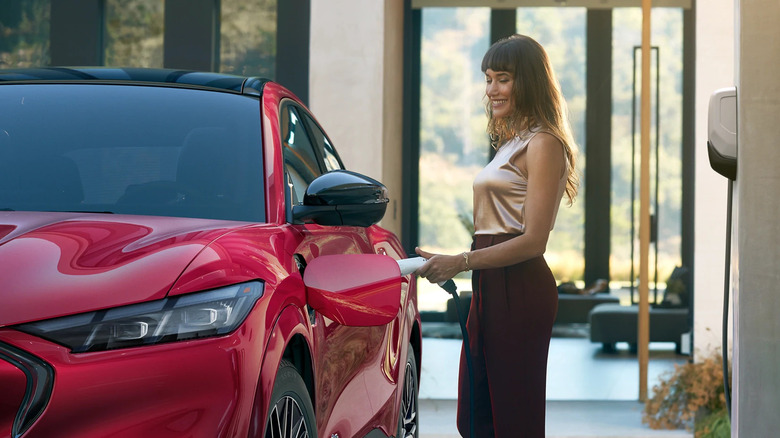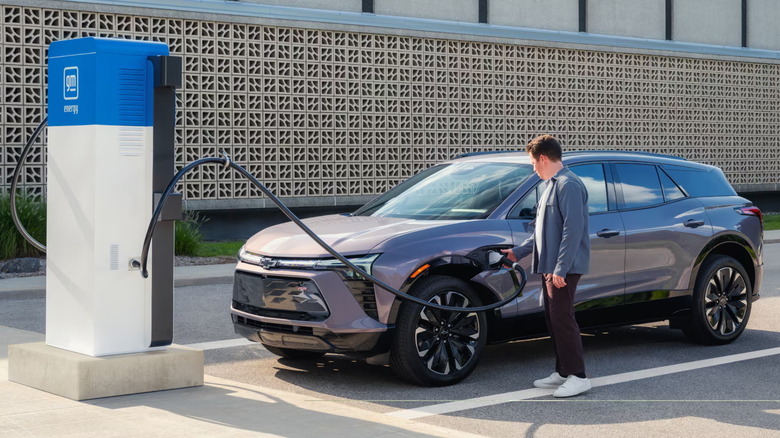Is It Safe To Leave Car Batteries On The Charger Overnight?
We have gotten into a habit of charging our electronic devices at night. Because we cannot use these things when we are asleep, this is when we charge our smartphones, smart watches, tablets, and anything else we need fully charged for the next day. This mentality has extended to electric vehicles as well. Charge times for EVs can sometimes be upwards of eight hours if the battery is fully dead, and the only time we know we have that amount of time free is during the night. However, you may be concerned about what could happen if you leave the charger plugged into your EV after it has been fully charged.
In terms of safety, there is really nothing you need to worry about here. If your home's outlets and circuits are all up to code and in working order, and your charging cable is in good condition, you can leave your EV plugged in for a long period of time. The issues only come about if there are exposed wires or water submergence that can damage your car, your home, or both. If you are still concerned, there are smart EV chargers for your home that you can program to turn off once your EV's battery has been fully charged, halting the flow of power.
While there is little safety risk in charging your EV overnight, that does not mean it is best for the health of your battery. You also could be spending more money than you would want to and contributing more to the overloading of the power grid than you realize, ultimately generating more greenhouse gas emissions than expected.
The troubles of nighttime charging at home
Despite the fact that charging your electric vehicle is a safe and convenient option, there are drawbacks to the practice, particularly as the market for EVs continues to grow over time. In a study conducted by Stanford University in 2022 and published in "Nature Energy," it was found that there could be significant strain placed on the power grid with the expanding ownership of these EVs. Because most people charge their cars at night, you could see an increased demand on the grid of up to 25% by 2035.
This added demand will cause electricity prices to rise, not just because of capitalizing on peak usage hours, but also because of the need to add storage capabilities to the grid. The study finds that the best way to relieve this over time is to charge your car during the day at a public charging station. Obviously, this is not an option for everyone, but for those who can do it, you might want to give this method a shot.
Another issue with overnight charging is that it can be problematic if you don't have a charger that automatically turns off once your battery is fully charged. Having continuous power flow to a charged battery will weaken the battery's ability to hold a charge in the long run. This is something we have become accustomed to with smartphones, smart watches, laptops, and other technological devices with a battery. An electric vehicle works the same way. It's often recommended to have your daily EV charging max out at 80% rather than 100% to maintain good battery life.

